What’s Behind Teacher Self Talk?
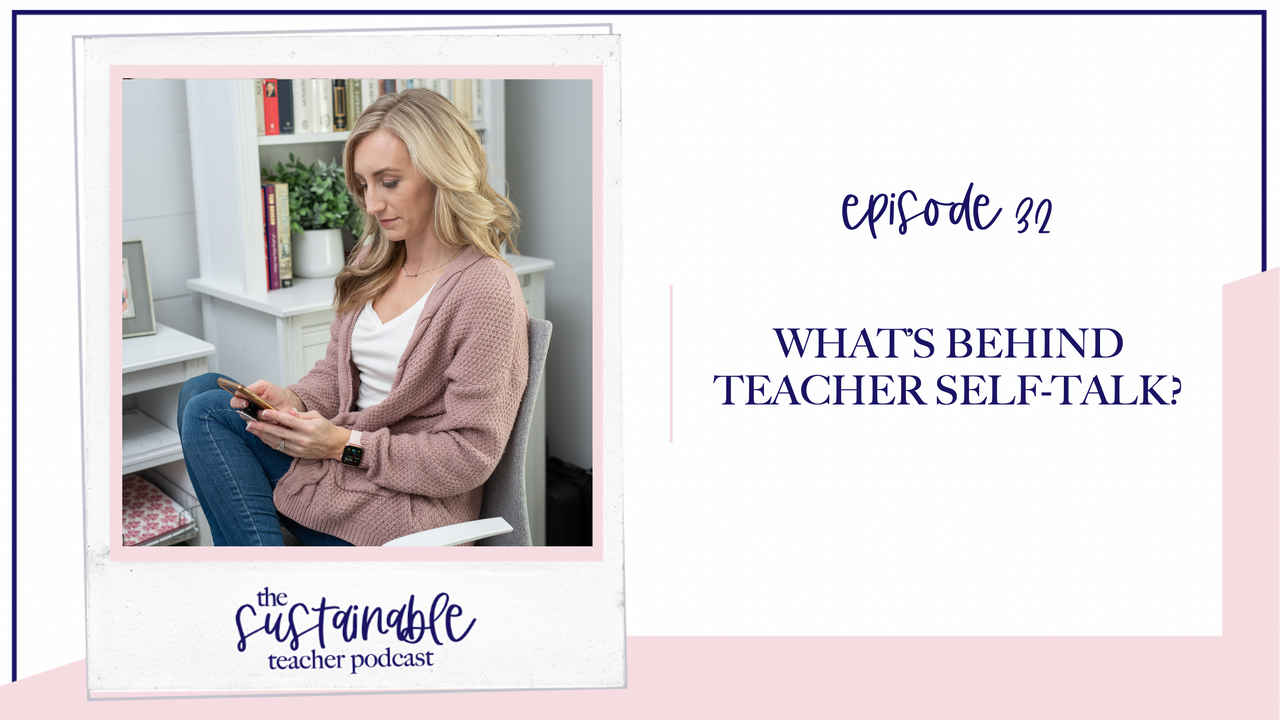
I was doing a Facebook Live not too long ago, and at the end as I was trying to convey to teachers watching that I too am a teacher, working for myself now, reaching out to teachers with my message of teacher sustainability, and I caught myself saying “I’m just a teacher.” And although I meant it in an endearing, relatable way, it still didn’t sit well with me that the word “just” wanted to creep in there.
Adding the word “just” means I’m nothing more than, or I could’ve done more with my life, but instead I’m “just” a teacher.
Have you ever caught yourself saying this or something like this? Maybe in a circle of friends who aren’t teachers?
Or how about this common saying, “Those who can, do. Those who can’t, teach.”
Now, that’s just a saying, but it’s one we’ve all heard, and I’m sure had aimed at us in some way before even if it was in a joking manner. But I bet it wasn’t laughable.
In many ways I think teachers have assumed these beliefs about teachers, and almost absor...
A Teacher's Flipped Classroom Transformation - Part 1
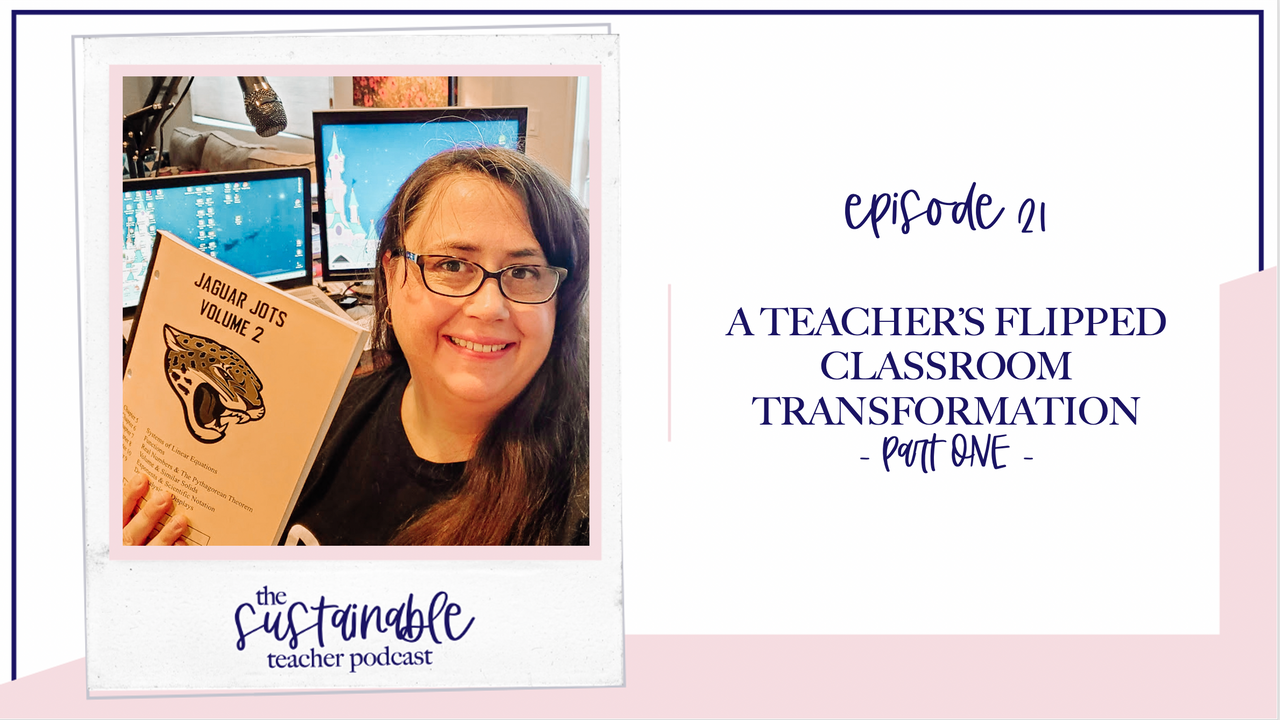
I can't wait to share this with you! Recently, I interviewed Keri Tafuro who demonstrated how flipping her classroom has transformed the teaching experience and the learning experience of her students, both within the pandemic and regardless of it.
On today’s episode of the Sustainable Teacher Podcast I am so excited to welcome Keri Tafuro, a full time classroom teacher of 7th and 8th grade math in Vacaville, California. Keri isi a 22-year teacher, having taught math at the high school, and now middle school level. She and her husband have two college-aged children, and mine and Keri’s paths crossed about a year ago when Keri was exploring a bit more about the flipped classroom, and came upon one of my Facebook live trainings.

Since then she has jumped in with two feet taking Flipped Classroom Formula last summer and into flipping her classroom this school year. I can’t wait to bring her on and have you hear her story of her transformation, and that of her students. ...
The Number One Tool Your Classroom Needs Right Now
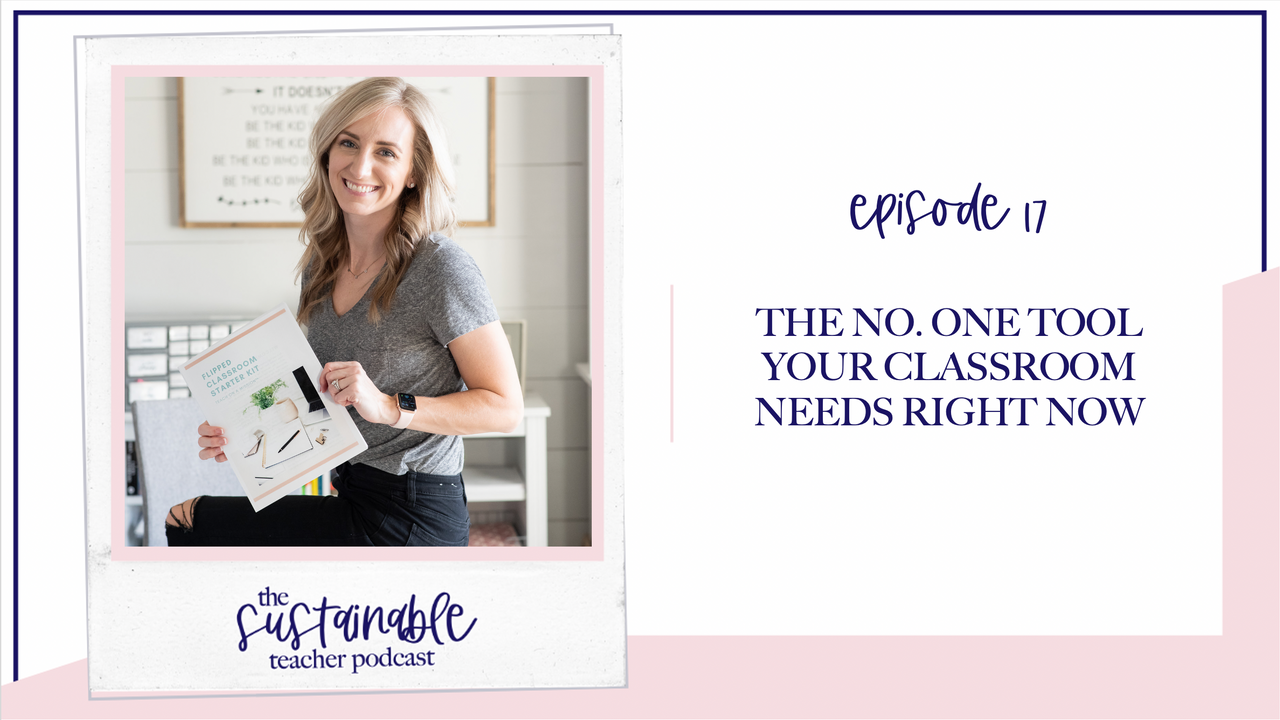
Hey there and welcome to the Sustainable Teacher Podcast/Blog about the number one tool your classroom needs right now.
We are in a time of transition in education as we head back to normal or at least to some sort of new normal. You are probably right in the middle of the teacher-hustle, and you’re reflecting on the changes you want to make to your daily teaching life so that it’s a bit more sustainable, am I right?
Either way, the tool that I’m going to tell you about today is one that’s going to help you take practical steps towards a more sustainable and effective classroom in the modern times of education. It’s going to help you take steps towards more evenings focused on your family and less weekends spent grading papers, all while maintaining or even increasing your effectiveness in the classroom.
Want to know what the number one tool is?
It’s the Flipped Classroom Starter Kit I’ve built to help you do just that, get started flipping your classroom.
In today's blog, I...
5 Things Everyone Should Know About the Flipped Classroom

There are only a few reasons why you may be reading this blog (or listening to this week's episode on the podcast) right now. You’ve heard of the flipped classroom and want to know a bit more. Or you feel like you’ve been flipping your classroom since the pandemic started and now you’re wondering how that translates as we enter our new normal. Or you know the new normal we’re heading toward can’t be the normal that was, and yet you’re not sure what it will look like, or more importantly what you want it to look like. All you know is, there has to be a better way to go about being accessible, flexible, and effective without you being the martyr that sacrifices your personal life and well being to do so.
I’m going out on a limb here to say that although there is no silver bullet in education to solve all our daily teaching life problems, flipping the classroom is absolutely the answer for most teachers to be accessible, flexible, and even more effective without sacrificing their s...
The "New Normal" in Education

If I sit still and quietly for a moment…. More than ever, at least in my own life, I can almost physically feel the currents of change in education. We could spend time labeling that change good or bad, but it’s happening with our without us due to circumstances and powers we can not control.
Have you heard the phrase “A rising tide lifts all boats?” It’s an aphorism tied to economic policy, but one that I’ve been thinking about a lot lately in the educational realm.
What if we looked at the shifts that are happening in education and our approach to the new normal as a chance to be the tide? We as individuals, seize this moment to say I’m going to shift and I am going to take advantage of this opportunity to show folks the possibilities here. What if?
I’ve got three takeaways for you today, and after reading this blog, teachers will feel empowered to face the inevitable changes in education, knowing that the flipped classroom will allow you to be flexible and proactive as we a...
I Bet You'd Never Guess These Numbers
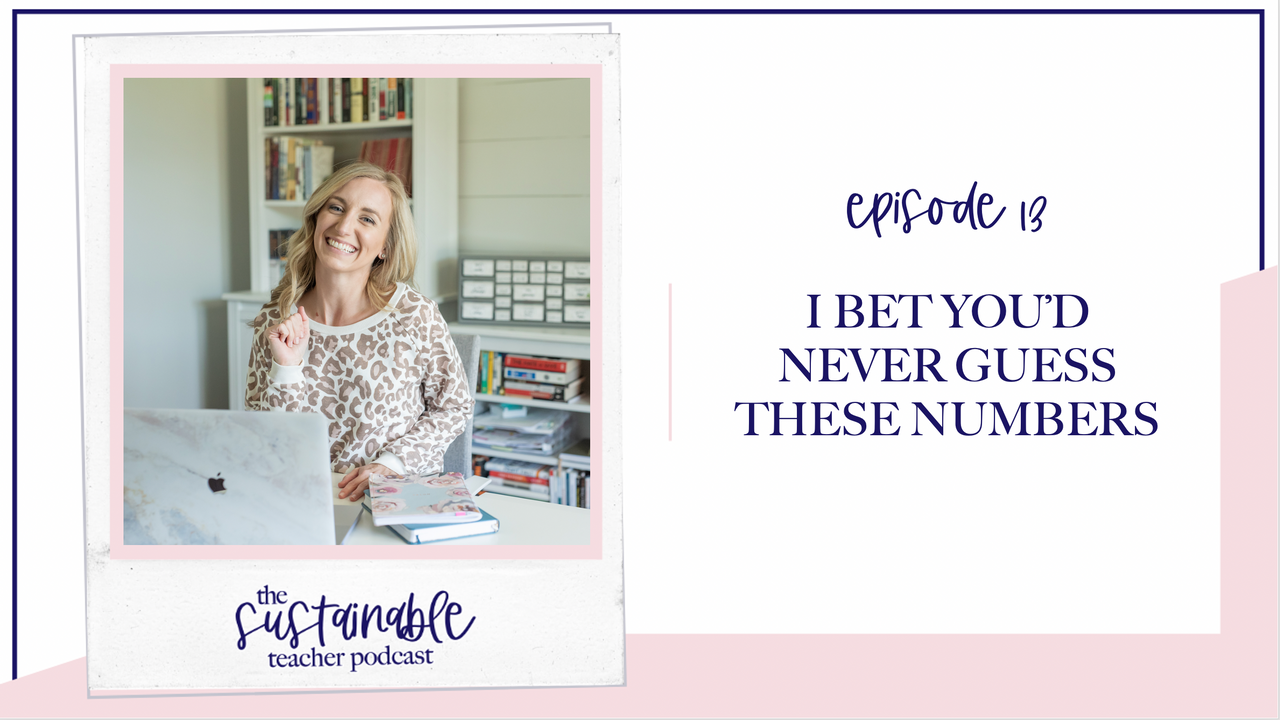
It’s 2011, and I’ve just finished my first year of teaching when over the summer I hop on the little portal that will show me how well I did. I taught an AP® course, among other courses, which for those of you who don’t know stands for Advanced Placement® and is a nation-wide curriculum and testing program run by CollegeBoard. At the end of every year, students take a test on the entire course’s material and can earn college credit - it’s a big deal for many students and certainly for the adults who teach them.
The test is scored on a scale of 1 to 5, with all public universities accepting a 3 for the equivalent of one college course in the field they tested. Then at private universities students can earn even more credit with higher scores.
Welp, I hopped on that portal and saw that my average student score was a 3.1. Not bad for a 22 year old teaching AP® Psychology for the first time and only ever having taken a psych course twice in her life - the first of which was AP® Psy...
Can I Help You With Student Accountability?
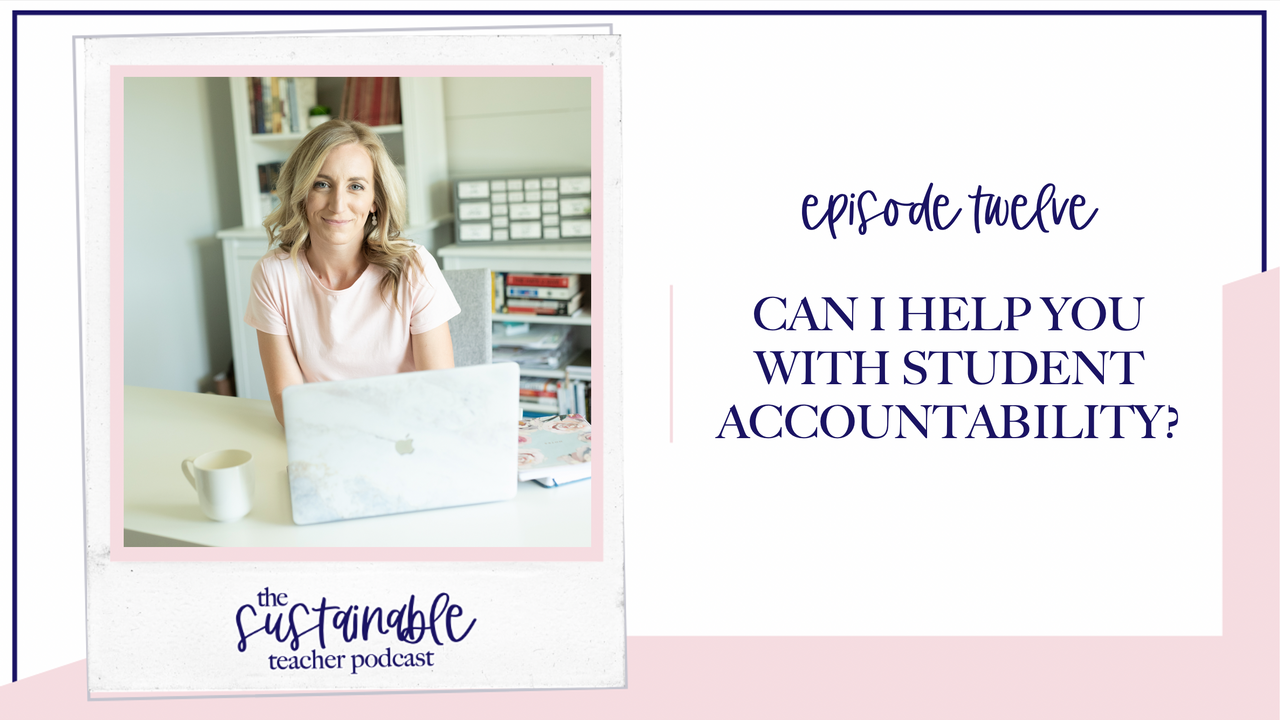
The million dollar question in education right now is how in the world we get our students to do the work? It seems we have alarming rates of failure and, week after week, a substantial amount of students just not doing the work. In the flipped classroom, this has always been one of the top questions I’ve fielded from teachers when they come to me for help to get the flipped classroom process started, and that is “What happens when a student doesn’t do the work, meaning take the notes, at home? Then what?”
This week we will dive into what it is to actually hold students accountable and how you can use it to not only be a more effective educator, but one who is actually reducing your own to-do list as student accountability increases. After listening to this episode, you will have clarity around what it means to hold your students accountable in ways that empower your students to own their learning, and ultimately reduce your to-do list as you watch your students totally rock it...
Parent Communication Systems
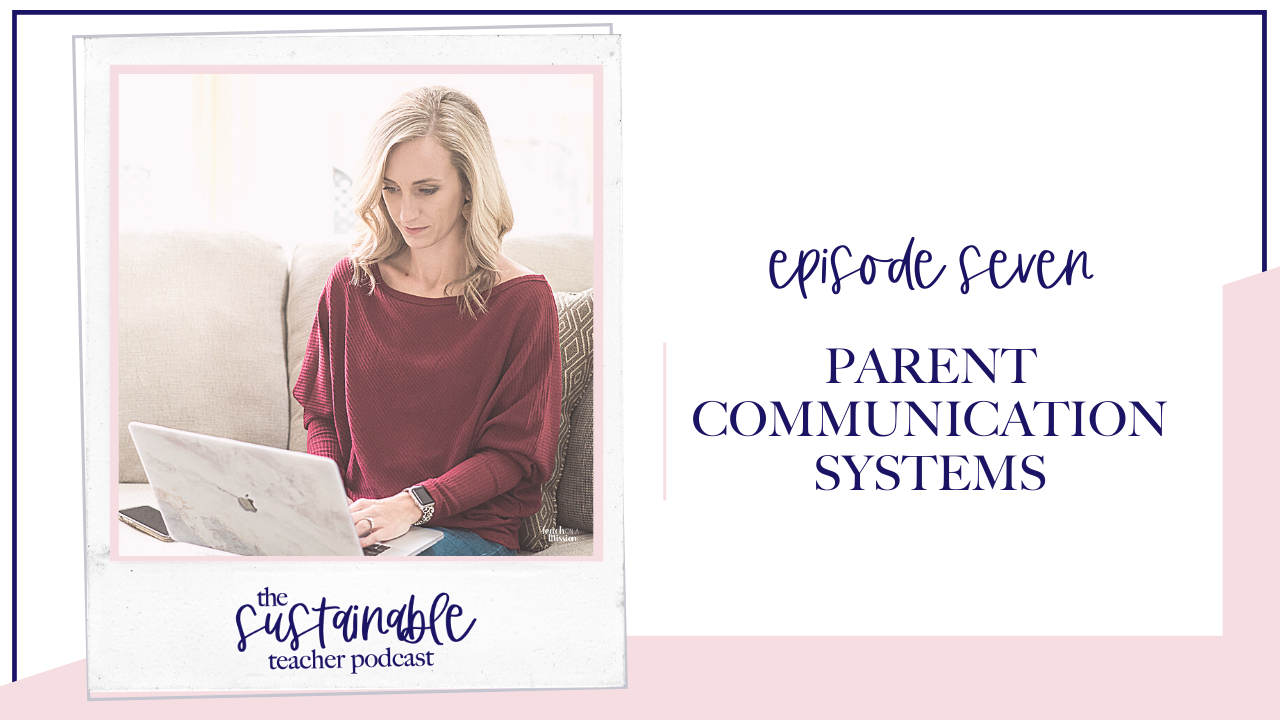
“Hours!” she said. “I spent HOURS on my Sunday afternoon grading just late work alone, and then you want to know what I had to do the rest of the week?” I could almost guess what it was, “call parents” she said, exacerbated. My teacher friend went on to explain how as it was the end of the quarter and grades were due soon, it was that time of the year that comes around four times per year to communicate to parents whose child is near or actually failing a course.
I squinted and turned my head to the side to lessen the blow of her answer as I asked, “how long did it take to contact parents?”
Three days after school, she said, until well past 5pm. And I never got to them all.
We’ve all been there. We’ve all been in a place where something in our teaching lives is taking up way more hours than we want it to, or than is healthy. Whether that’s because we’re new at it and haven’t developed the processes to make it a quick process, or we just straight up don’t like doing it. Eit...
Declaring the Student Learning Process
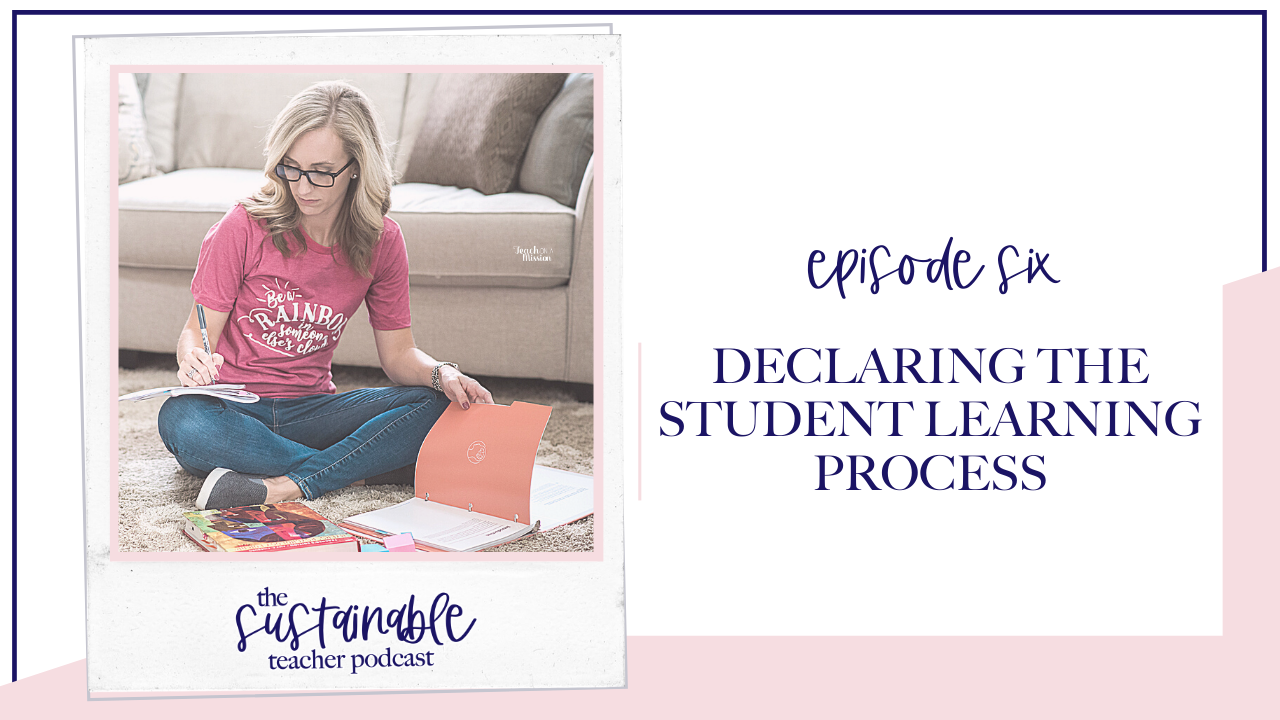
Although I wouldn’t wish living through a pandemic on my worst enemy and I’m sure we’d all love to get back to normal, there are major lessons I believe we all can learn from this experience within the world of education. I could list quite a few and make separate episodes on each of them - hey, note to self, maybe I will - but one of those lessons is that our time with students, meaning a teacher’s time with his or her students IN THEIR PRESENCE is not only imperative, in many cases it’s an issue of equity.
The fluctuating schedules, whether they are all virtual or some variation of hybrid, we teachers feel the urgency of wanting to see our students more - wanting more time to master those standards, right?!?
And you may even be drowning right now in the schedule you’re living, unable to keep up with all things. Whether you are fully remote, some form of hybrid, or even back to face-to-face 5 days a week “normal” some day, I want you to try out this one thing in making it all a ...
3 Steps to Sustainable Planning
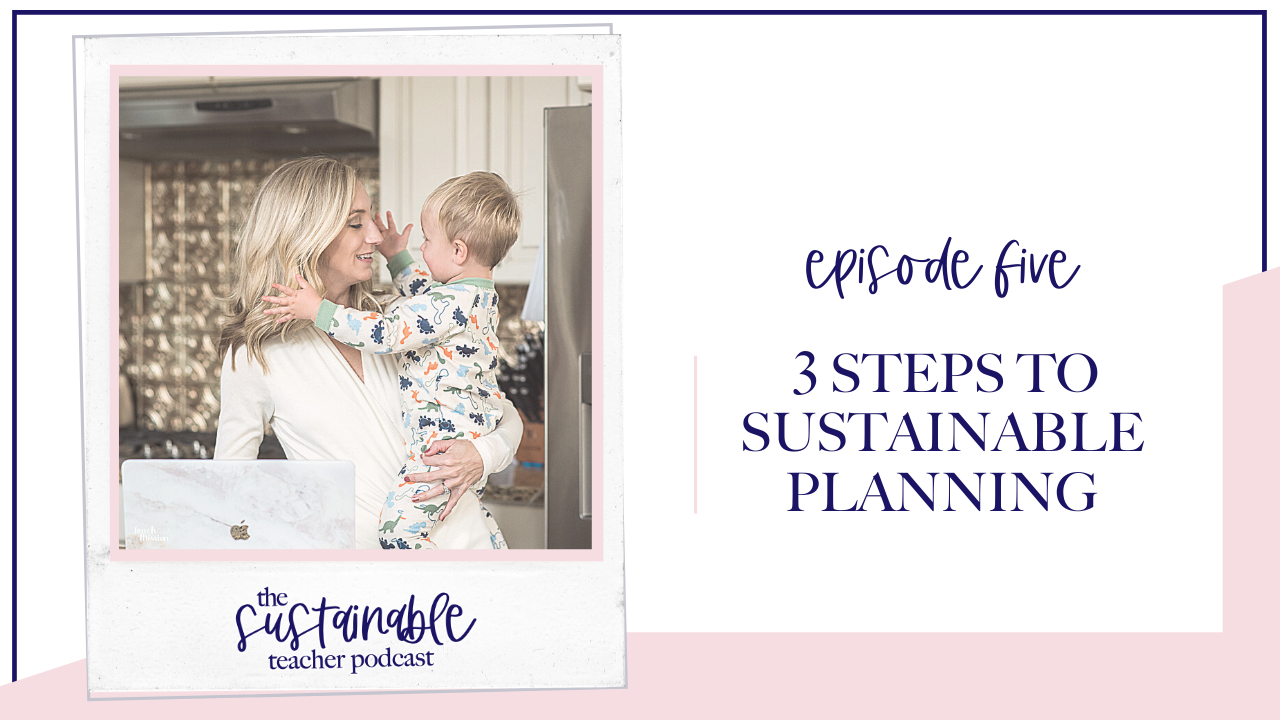
I LOVE all things planning. In fact, I plan out our family calendar each year in January… no joke the whole year. But even as much as I love to know what we’ve got coming up and how we can best use our finite amount of time on earth, planning as a teacher can be tough. You can do some really great work for it all to just change on a dime without any heads up or prior notice, and there’s nothing you can do about it. That’s just the nature of the beast, but there also has to be a better way to make this whole planning thing more effective and more intentional so that it serves us and our students.
In today’s post I walk you through three steps that will help you do just that - streamline your planning process so that you’re better able to stay on track throughout the school year and are helping your future self when you go to plan in the years to come. Let’s get to it.

I hope that you’ve been able to catch some of our recent blog posts about Finding Your Why or Sustainable S...


